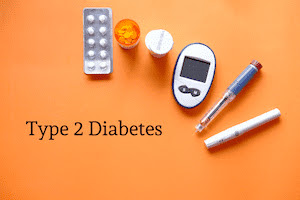Definition
Type 2 diabetes is another type of diabetes. It is a chronic condition as well as a lifelong problem. The type 2 diabetes usually affects middle aged or older people. So, it can be called adult-onset diabetes. But it can also develop in children and teen because of obesity. It is the most common type of diabetes.
Causes
Insulin is a very significant hormone of your body. Your pancreas produces it and leaves it at the time of your eating. Insulin transport glucose or blood sugar from your bloodstream to cells as their necessaries. Your body cells stores it and uses it later when needed. When you are attacked by type 2 diabetes, your body cells can’t use insulin which impacts the pancreas to work harder to produce more insulin. This bad impact may damage or destroy the cells of your pancreas. If you can’t produce adequate insulin or use it as the needs of your body cells, glucose or blood sugar starts to increase in your bloodstream. And as your body cells don’t get enough insulin to do their necessary works, they remain in starvation. But is unknown to doctors what triggers these.
Symptoms
While being affected by the symptoms of type 2 diabetes, the symptoms appear at first as mild. But in course of time the symptoms may be severe or more dangerous. This type 2 diabetes develops in body very slowly. The symptoms of type 2 diabetes include:
- A lot of urination
- Fatigue
- Feeling very thirsty
- Having a blurry vision
- Non-healing wounds
- Weight loss without diet or exercise
- Being attacked by infections more
- Feeling hungry
- Pain and numbness in your hands or feet
Risk factors
Certain things increase the chance of getting affected by type 2 diabetes. The things include if you:
- Are 45 years aged or more than that
- Have a family member like parents, brother, sister with type 2 diabetes
- Are African American, Alaska Native, Native American, Asian American, Hispanic or Latino, or Pacific Islander American
The following things are related or connected to your health and medical history which can also lead you to type 2 diabetes:
- Having overweight
- Polycystic ovary syndrome (PCOS)
- Eating huge amount of high processed food
- Leading a sedentary life
- Prediabetes
- Having a baby who has a weight of 9 pounds
- Gestational diabetes in your pregnancy period
- Depression
Treatments
The best treatment for type 2 diabetes is to monitor your blood sugar level. Your doctor will tell you a range in which the blood sugar has to stay in. your goal is to keep the blood sugar level in the range. You have to eat those food which are rich in carbohydrates and avoid some foods which are over processed. Your weight must go with your age to keep your heart well for working. Try to exercise at least 30 minutes a day. Exercise can be helpful in keeping your blood sugar level under control. Your doctor will also give you some advice about what to do in every appeared symptoms. You need to follow those. Consulting a dietitian is beneficial as he/she will tell you which foods play role to increase the blood sugar level and which to avoid and consume.
Prevention
The best way to prevent type 2 diabetes is to live a healthy life. You may be attacked by diabetes before. But healthy lifestyle can reduce your risk of diabetes. In a healthy lifestyle there are so many things to consider. You have to eat right kind of food to reduce your risk at type 2 diabetes. You have to avoid highly processed food and focus on those which are rich in carbohydrates, fiber. You may also take vegetables and fruits. Losing 7 to 10% of your weight can decrease risk of this type of diabetes. Exercise is also so helpful in this case. Set a target of taking 150 minutes of exercise a week. Your exercise may include: running, fast walking, swimming etc. You have to avoid sitting still long period as it increases the risk.

Comments
Post a Comment